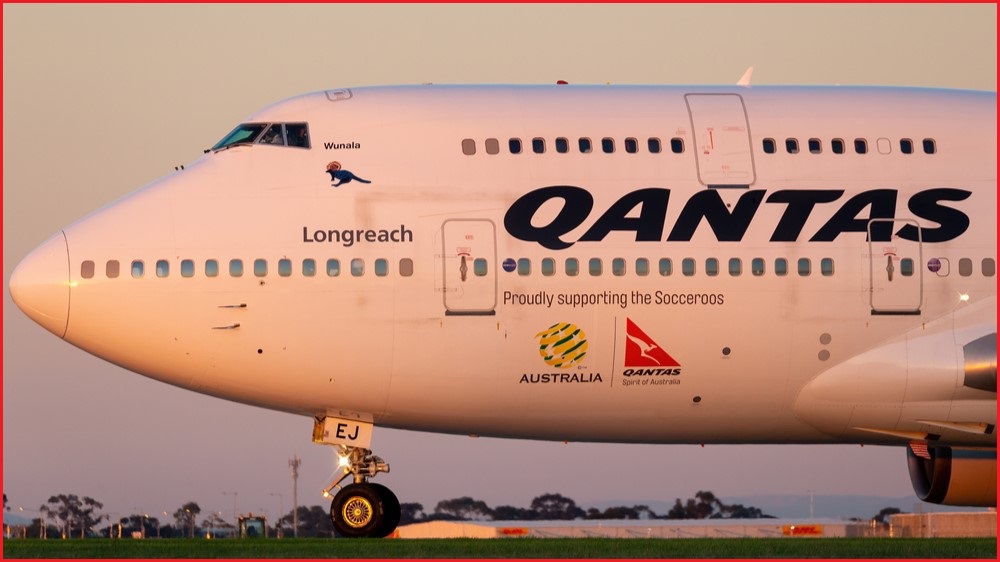The Federal Court has imposed a $100 million fine on Qantas after it advertised tickets online for thousands of flights it had already decided to cancel.
In 2023, the Australian Competition and Consumer Commission (ACCC) set its sights on Qantas for advertising tickets on more than 8,000 already-cancelled flights during the height of the global pandemic.
While this alone would have been enough to accuse the airline of engaging in “false, misleading or deceptive conduct”, Qantas admitted these ‘phantom flights’ were far more egregious and wide-reaching than previously thought.
The company conceded it breached Australian Consumer Law (ACL) by “engaging in misleading or deceptive conduct, making false or misleading representations and engaging in conduct liable to mislead the public” on more than 82,000 flights scheduled between May 2022 and May 2024.
“Qantas breached the law in two ways,” the ACCC explained.
“First, it continued to offer and sell tickets for flights for two or more days after it had decided to cancel those flights.
“Second, Qantas continued to display flight details on the ‘Manage Booking’ page of existing ticketholders for two or more days after it had decided to cancel the relevant flight with no indication that Qantas had decided to cancel that flight.”
The ACCC said tickets for these phantom flights were on offer for an average of about 11 days after cancellation, and in some cases, up to 62 days.
Further, the ACCC noted nearly 884,000 consumers were affected by Qantas’ delayed notification of flight cancellations, while some 86,597 consumers ended up unknowingly buying or being re-accommodated to flights which were already axed.
“People had made plans, and may have spent money on other related purchases, relying on the fact that the flight would depart as advertised,” said ACCC chair Gina Cass-Gottlieb.
“And the delay in notifying them of the cancellation may have made it more stressful and costly to make alternative arrangements.
“A large, well-resourced company like Qantas should have had strong operating and compliance programs in place that would have prevented these issues from arising.”
Massive penalties make message clear
“This is a substantial penalty, which sets a strong signal to all businesses, big or small, that they will face serious consequences if they mislead their customers,” said Cass-Gottlieb.
A statement from the commission reveals Qantas’ misconduct was no accident; the airline admitted senior managers “responsible for different aspects of Qantas’ systems and operations between them” knew cancelled flights were not immediately removed for sale.
Managers were also aware some consumers booked these already-cancelled flights and existing ticketholders weren’t appropriately notified.
“Qantas admitted that it benefited from the conduct by obtaining revenue from consumers who may have chosen a cheaper Qantas flight,” the ACCC explained.
The airline – which boasted record profits in financial year 2023 and received a generous $2.7 billion government ‘bailout’ during the height of the pandemic – also benefited by retaining revenue from consumers who were less likely to change carrier when they were eventually notified their flight had been cancelled.
Adam Glezer of consumer advocacy organisation Consumer Champion told Information Age he was glad the ACCC “stepped up” and made it clear such misleading behaviour will not be tolerated.
"I am hoping the $100 million fine will financially hurt them enough to send a clear message that misleading consumers like this is completely unacceptable,” said Glezer.
Is compensation enough?
In addition to its court-imposed penalties, Qantas has begun paying $20 million to affected consumers – particularly for those who booked or were accommodated to already-canned flights.
Impacted Trans-Tasman passengers are broadly eligible for $225, while international passengers may receive $450.
“These payments are in addition to any remedies consumers already received from Qantas, such as alternative flights or refunds,” the ACCC explained.
The airline has also been made to establish a consumer remediation program, to which consumers can submit a claim until 6 May 2025.
“The ACCC urges all eligible consumers impacted by this conduct to submit their claims as soon as possible, so they can receive their payment,” Cass-Gottlieb said.
Glezer meanwhile questioned the compensation outcomes given so many customers “had their travel plans thrown into chaos due to Qantas’ conduct”.
“They should be paying significantly more than $20 million in compensation,” he said.
Glezer added Qantas’ dodgy conduct was made possible due to a “a complete lack of transparency” in Australia’s airline industry.
“They make the process of acquiring refunds or getting to the truth of a transaction so painful that the majority of consumers give up,” said Glezer, adding that Australia has a “serious lack of help” for consumers who have complaints about flights.
“Australians don’t have anywhere reliable they can go to for help at the moment – I know a number of people that have gone to Consumer Affairs to try and seek assistance.
“Not one of them got their problem resolved.”
Glezer said Australians “appear to be treated as second-class citizens” after finding Qantas’ refund and compensation policies are drastically different between Australia, the UK and Canada.
The federal government recently announced plans for an independent aviation ombuds to replace the infamously panned, industry-funded Airline Consumer Advocate.










